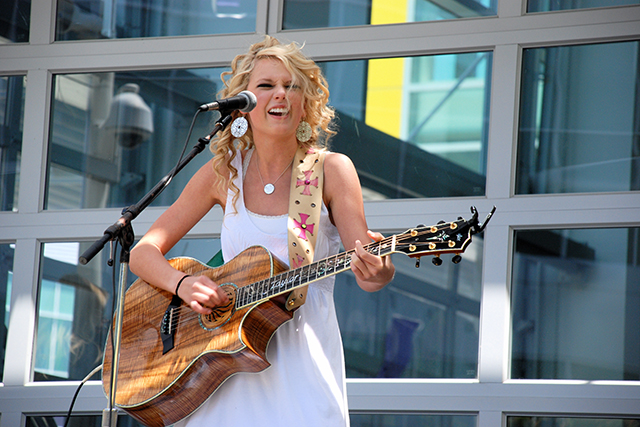
Photo Courtesy of Glenn T, Flickr Creative Commons
Taylor Swift has often been called a boy crazy serial dater by media that seemingly follow her relationships with some of the entertainment world’s most notorious bachelors.
With the release of her new “Blank Space” music video this week, though, Swift fought back against the media’s representation of her as a scorned woman who only writes despairing songs about ex-lovers who have broken her heart or she theirs.
In a 2013 Vanity Fair interview, it became increasingly clear that Swift is self-aware about her image in the media, and that she does not care what the public has to say in regards to her personal dating life.
She illustrates this in her latest music video, a parody of public opinion about her love life, which depicts her as an insecure, obsessive and violent girlfriend.
Any song that Swift releases immediately sparks speculation, and this one was no different.
A majority of commentators were taken aback by her deranged and theatrical performance consisting of stabbing framed paintings and setting fire to her ex-lover’s clothing.
Swift’s mascara-smeared appearance and disturbed actions, while peculiar at first glance, generated a discussion about the double standard that exists in dating between men and women.
Women are heavily criticized for actively dating or for having a long list of ex-partners—unlike men, who are continually encouraged to seek romantic or sexual relationships with women.
There is a double standard in dating that keeps women from exploring their sexuality or connectivity with potential partners, and keeps them from feeling like they have autonomy over their romantic and sexual behaviors without social repercussions.
While the video touches on a fundamental problem with the way men and women interact, forcing the audience to deconstruct gender dynamics, Swift’s music video also has women and feminists everywhere up in arms about the use of “crazy” to describe her behavior in the video.
The word “crazy” is such a convenient word for men to use against women to reinforce their own sense of superiority.
Saying that a woman is “crazy” is not just annoying, but also acts as a microaggression that preserves a sexist culture where women are seen as inferior and irrational when compared to men.
Men, however, are seen as logical and rightfully emotionless, whereas women only fall into the “overly emotional crazy girl” trope.
Aside from perpetuating the mental health stigma that hinders mental health awareness, the problem with the assumption that women are “crazy” or “insane” is that these words undermine the judgment of women everywhere by discrediting their emotions and opinions. It gives men an excuse to not listen to the ideas or opinions of women since they can easily default to saying that a woman is “crazy” without further context or explanation.
Words that demean women and shame them into compliance to men need to be eliminated from our everyday vocabulary. Only after this happens will women stop questioning their feelings after they have been told that they are “overreacting” or acting in an “irrational” manner. The more women hear these things, the more they actually begin to believe that they are in the wrong.
Until this happens, superstar millionaires like Swift will continue to create satirical media to get a point across: women are entitled to their emotions and should not be pigeonholed to conventional standards of femininity and gender roles.
ygarcia@ramapo.edu





